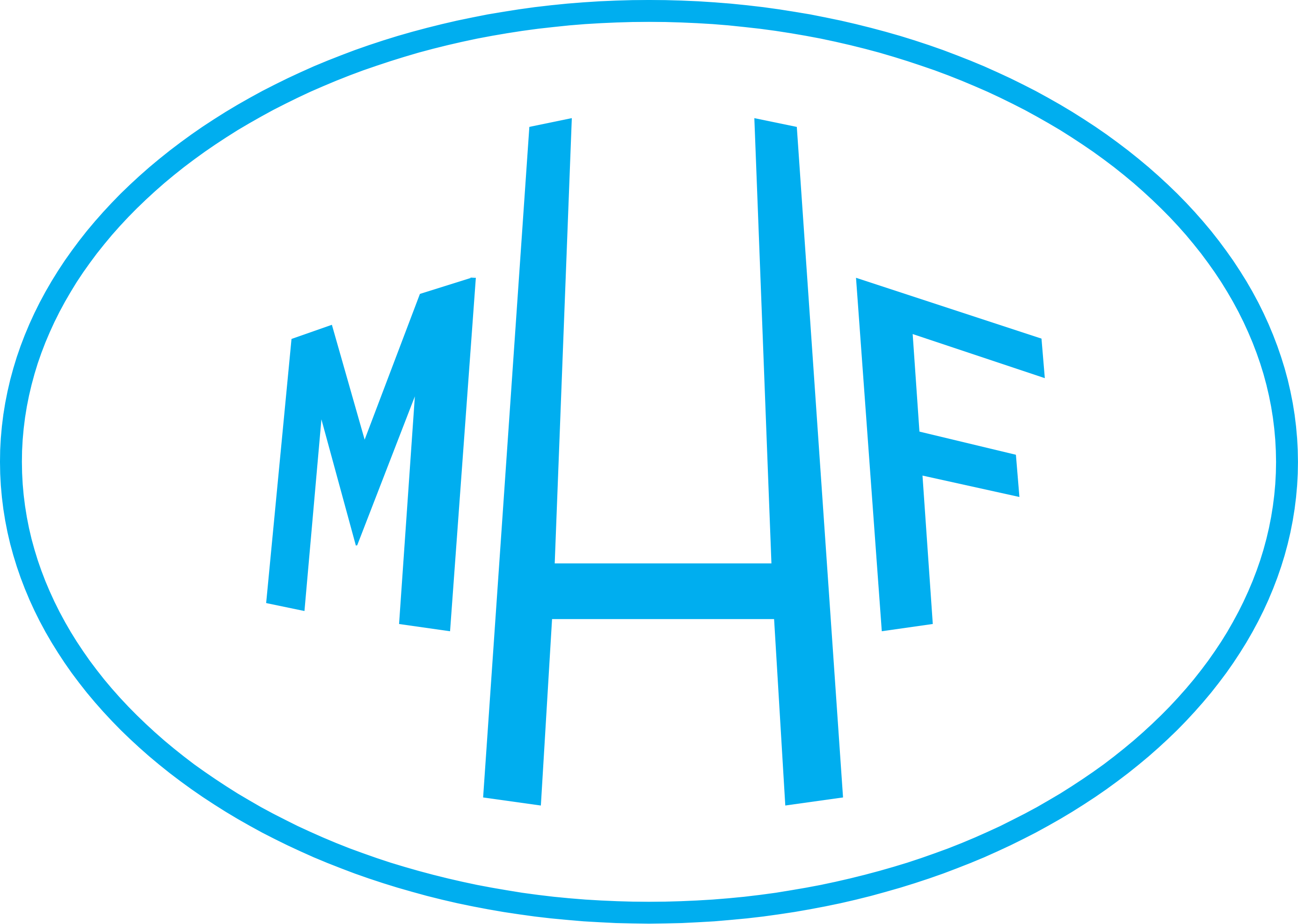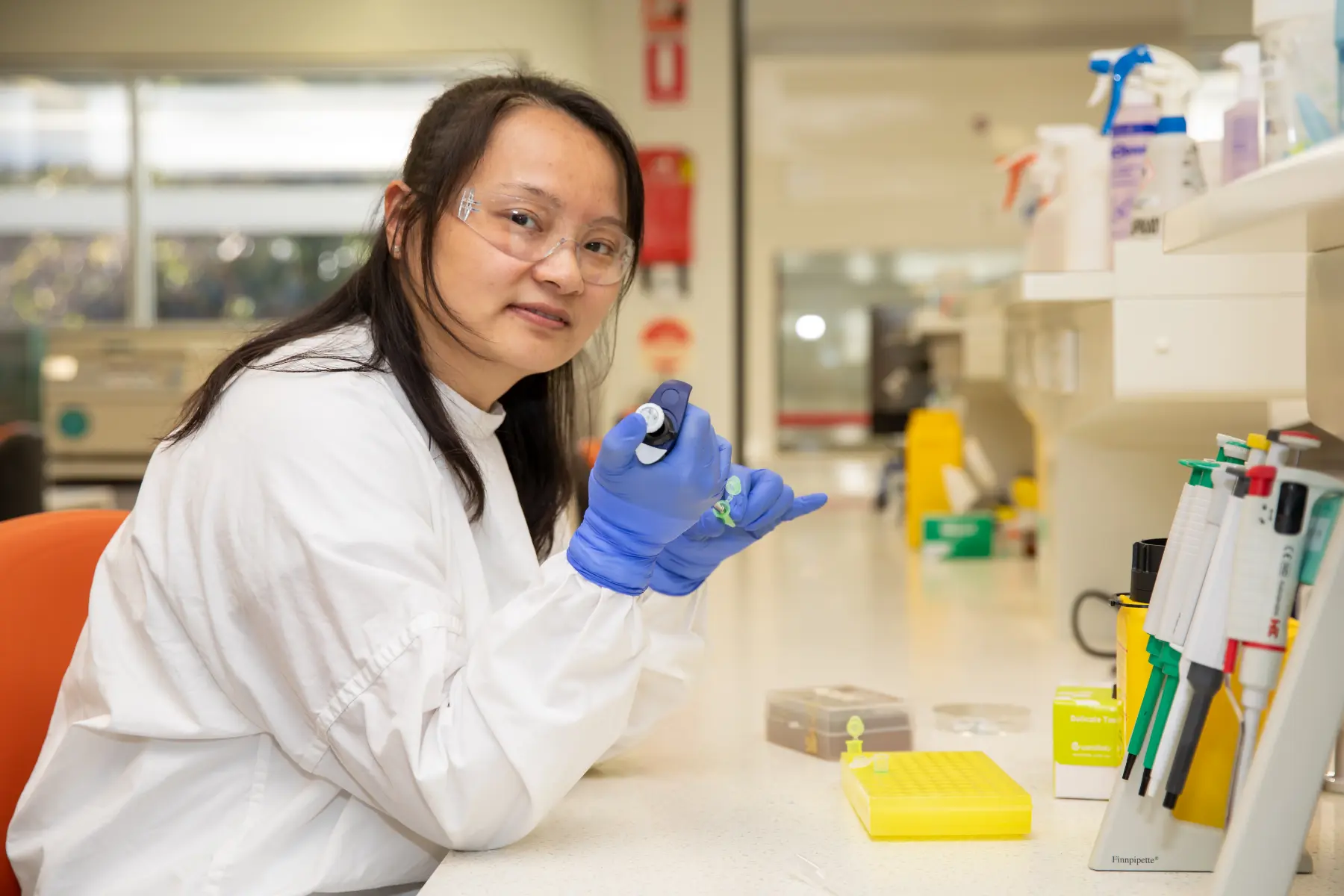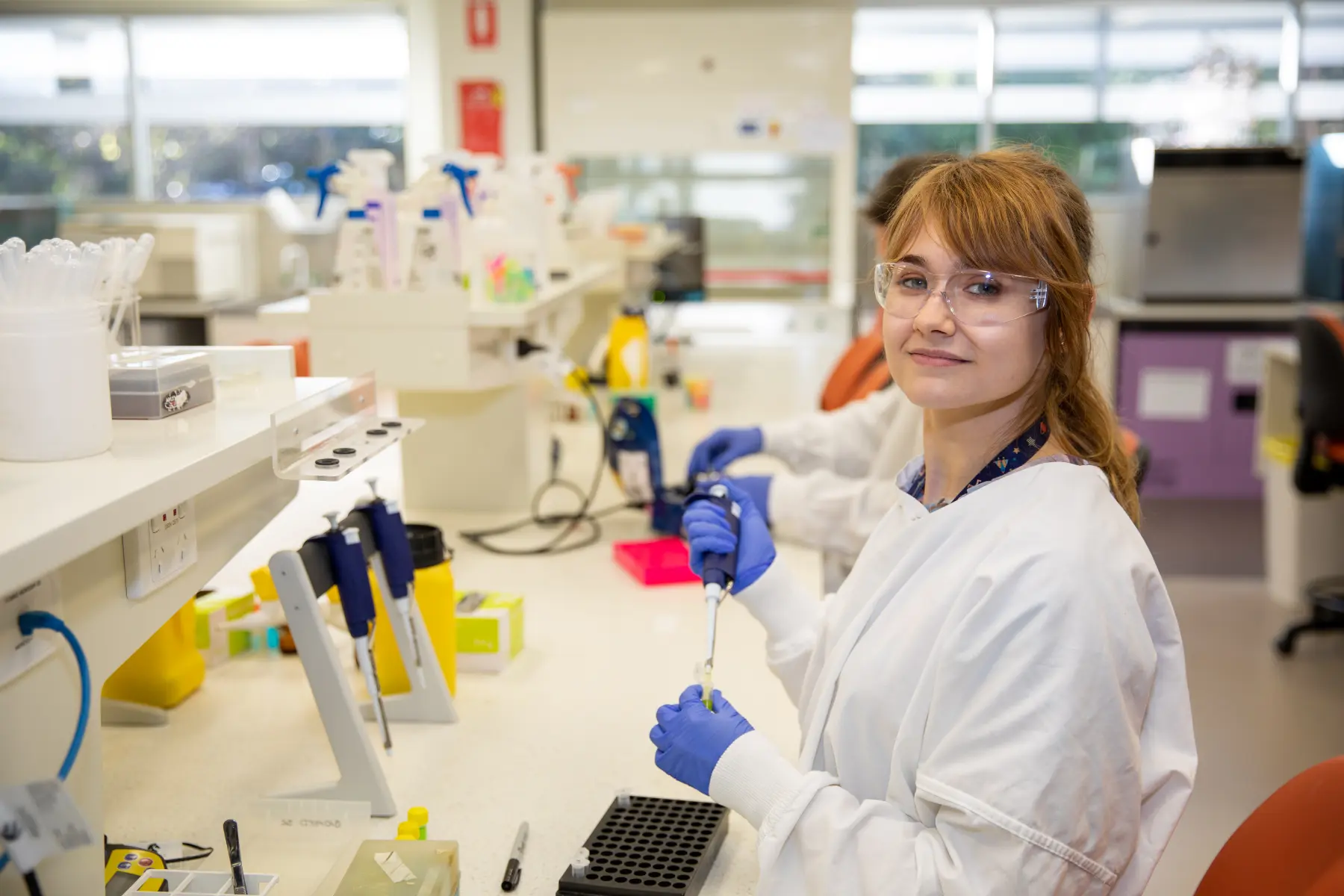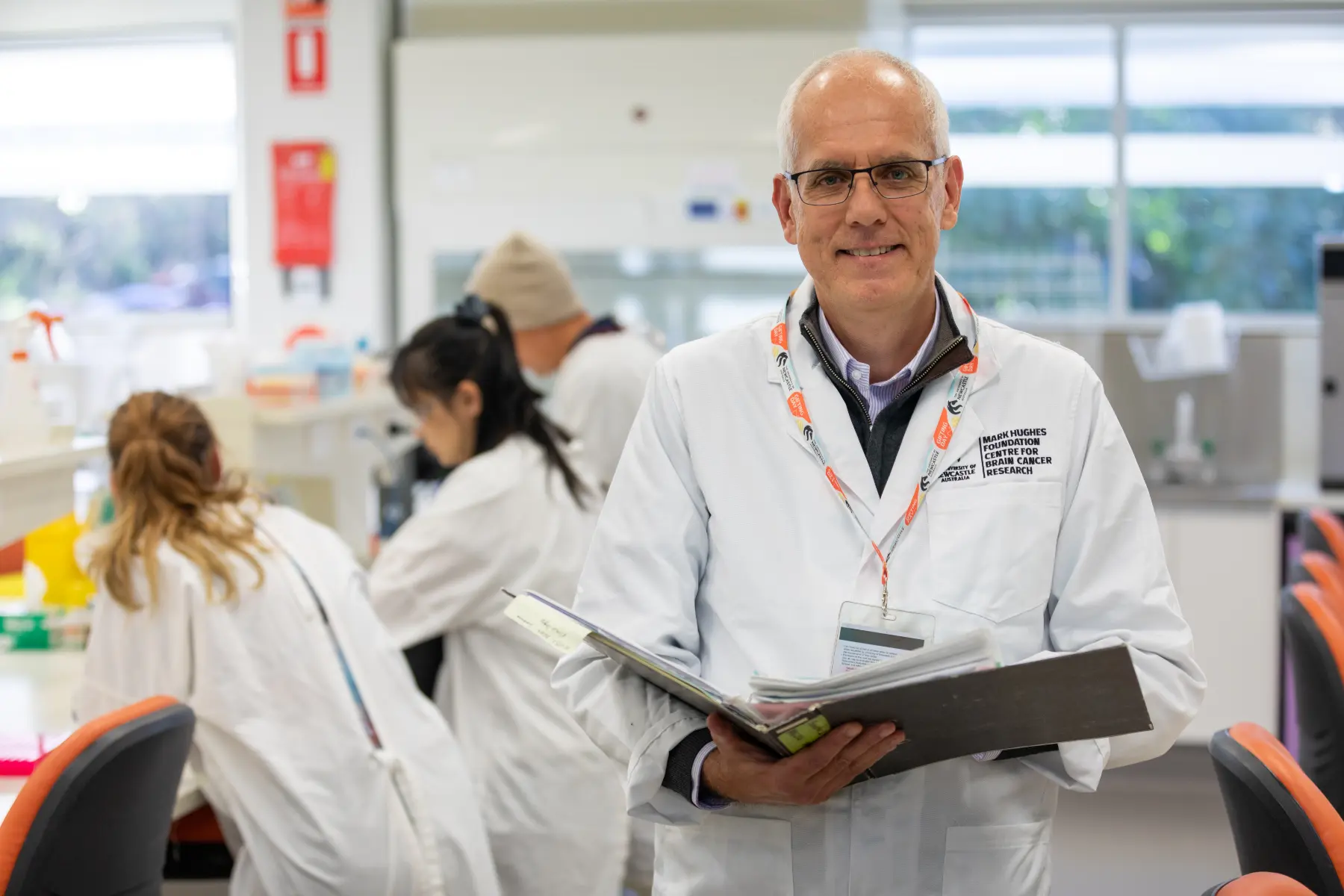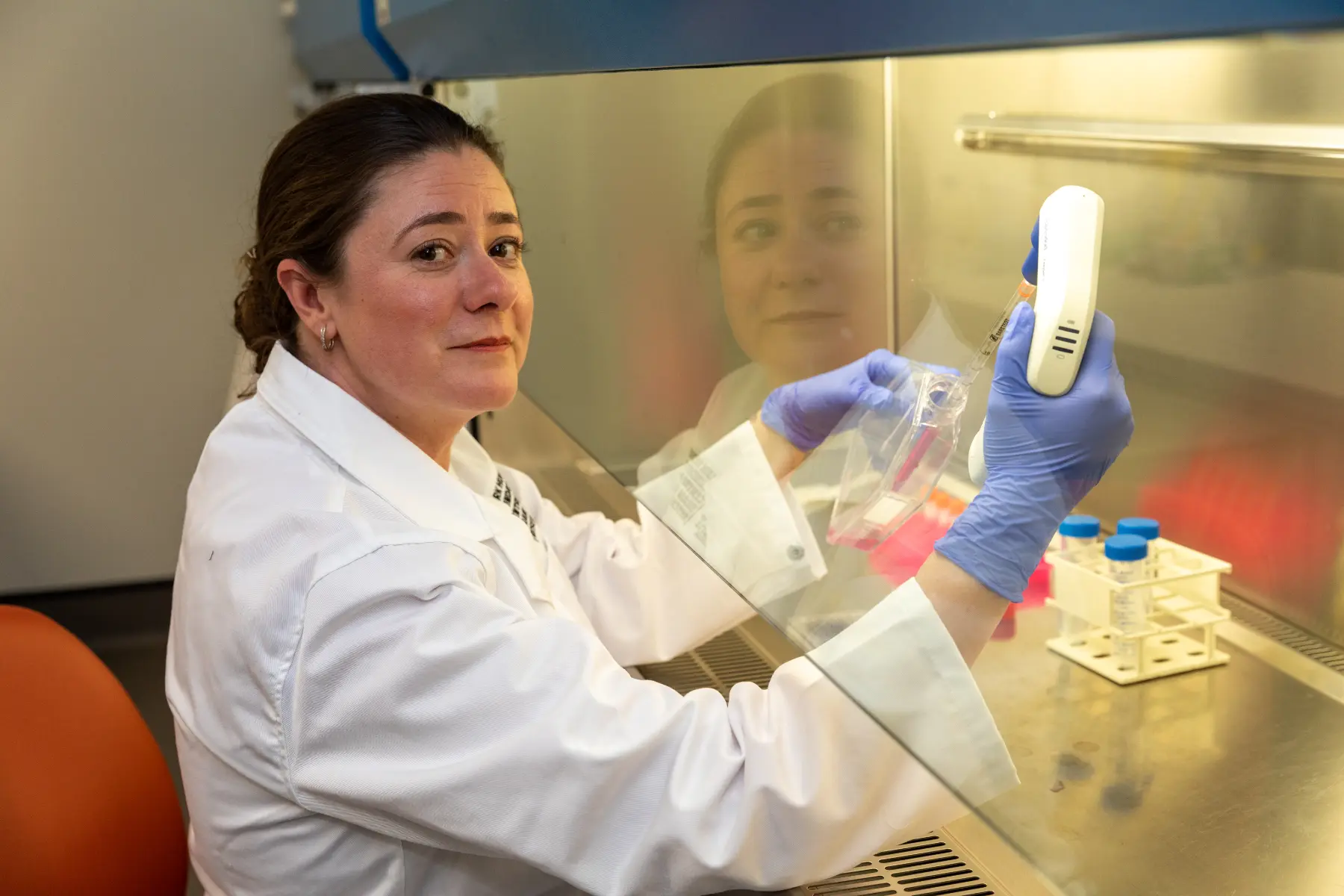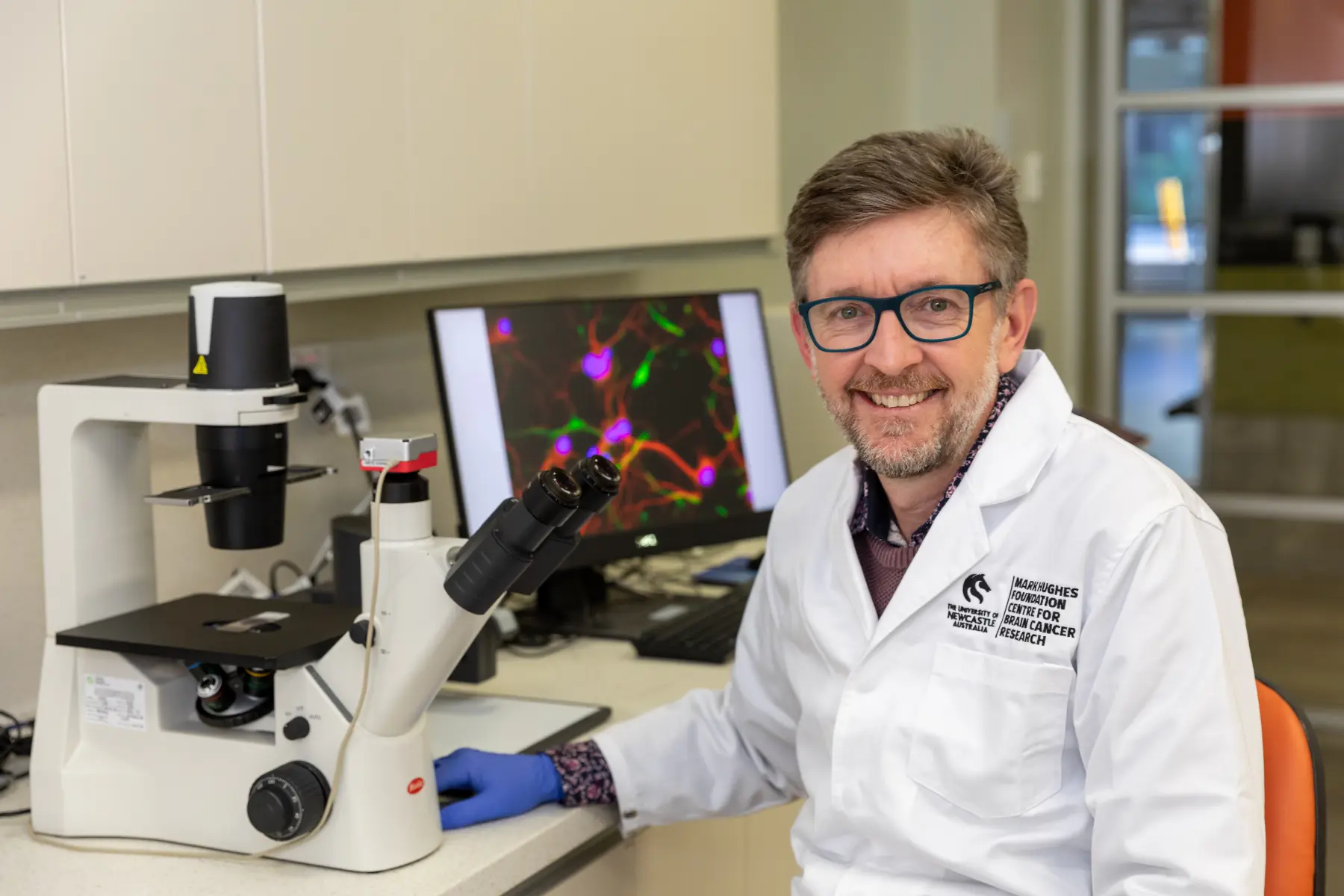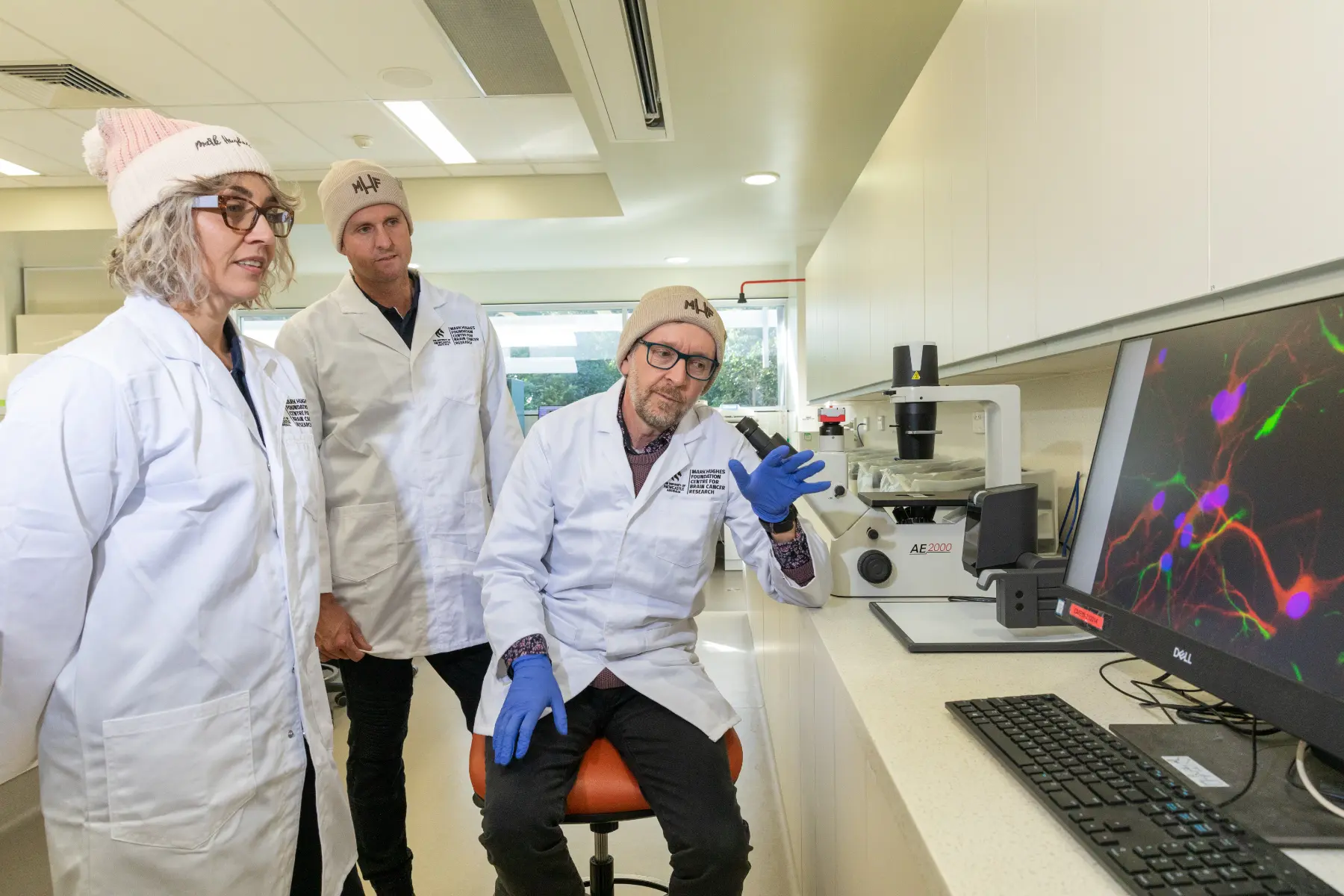Funding raised from the 2025 NRL Beanie for Brain Cancer Round will kickstart a big, bold project to develop new treatments for brain cancer patients.
Delivered through the Mark Hughes Foundation Centre for Brain Cancer Research (MHF Centre) at the University of Newcastle, this year’s Beanie Round funding will aim to answer an urgent patient call for new options to treat brain cancer.
The MHF Centre will partner with industry and researchers in Queensland to develop new highly-targeted drugs that can be delivered directly to the site of the tumour via theranostics.
Theranostics is a personalised treatment that can be used for a wide range of cancers. Using a PET scanner, the operator can see if specific targets are present on tumour cells. If the targets are present, a radioactive form of the drug is given as an injection – selectively targeting the tumour cells and avoiding healthy areas.
MHF Centre Director and practising radiation oncologist, Professor Mike Fay, said it was an exciting opportunity.
“As a brain cancer research centre based in regional Australia, we’re uniquely placed to do novel drug development, trial it in a small number of patients and scale it up in partnership with pharmaceutical companies.”
Professor Fay said every week he sees patients in clinic, who want, and deserve, better treatments for brain cancer.
“We know that radiation works for brain tumours, we just need to make it work better.
“Patients want us to be brave and to develop and trial new treatments,” Professor Fay said.
“If we’re successful with this project, the clinical roll out for treatments could be done really quickly into practice in clinics around the country.”
Mark Hughes, founder of the Mark Hughes Foundation said the nation got behind the 2025 NRL Beanie for Brain Cancer Round in massive numbers with more than $3.5 million raised for brain cancer research and patient support.
“We want to turn that hope into promise,” Mark said.
“In the ninth year of the Beanie Round it’s time to fund big research projects that have the potential to make a real difference for people with brain cancer.
“We’re excited about this funding because it will give patients the chance to get involved in clinical trials and this could make a real difference for people with brain cancer.”
Professor Fay said he was confident they could team up to deliver on the project.
“With our centre’s research expertise in imaging and therapeutics, the country’s newest MRI and our close connections to patients – we are ideally placed to develop and trial new options for brain cancer.
“It’s proof that when the community comes together, we really can make great strides to tackle brain cancer.”
For more than 10 years, the Mark Hughes Foundation (MHF) has been committed to funding vital medical research into brain cancer – the leading cause of cancer death in Australians under 40 and children under 10.
Established in 2022 to build stronger relationships with brain cancer researchers nationally and globally – the MHF Centre for Brain Cancer Research is unifying brain cancer researchers and working together for better outcomes.
This research collaboration demonstrates the University’s commitment to helping its communities live better, healthier lives.
